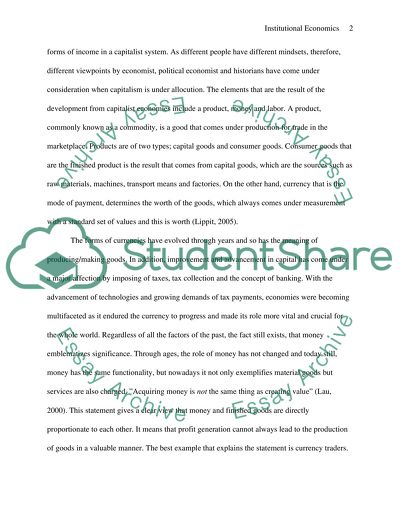Cite this document
(“Institutional economics Term Paper Example | Topics and Well Written Essays - 1000 words”, n.d.)
Retrieved from https://studentshare.org/environmental-studies/1421387-institutional-economics
Retrieved from https://studentshare.org/environmental-studies/1421387-institutional-economics
(Institutional Economics Term Paper Example | Topics and Well Written Essays - 1000 Words)
https://studentshare.org/environmental-studies/1421387-institutional-economics.
https://studentshare.org/environmental-studies/1421387-institutional-economics.
“Institutional Economics Term Paper Example | Topics and Well Written Essays - 1000 Words”, n.d. https://studentshare.org/environmental-studies/1421387-institutional-economics.


